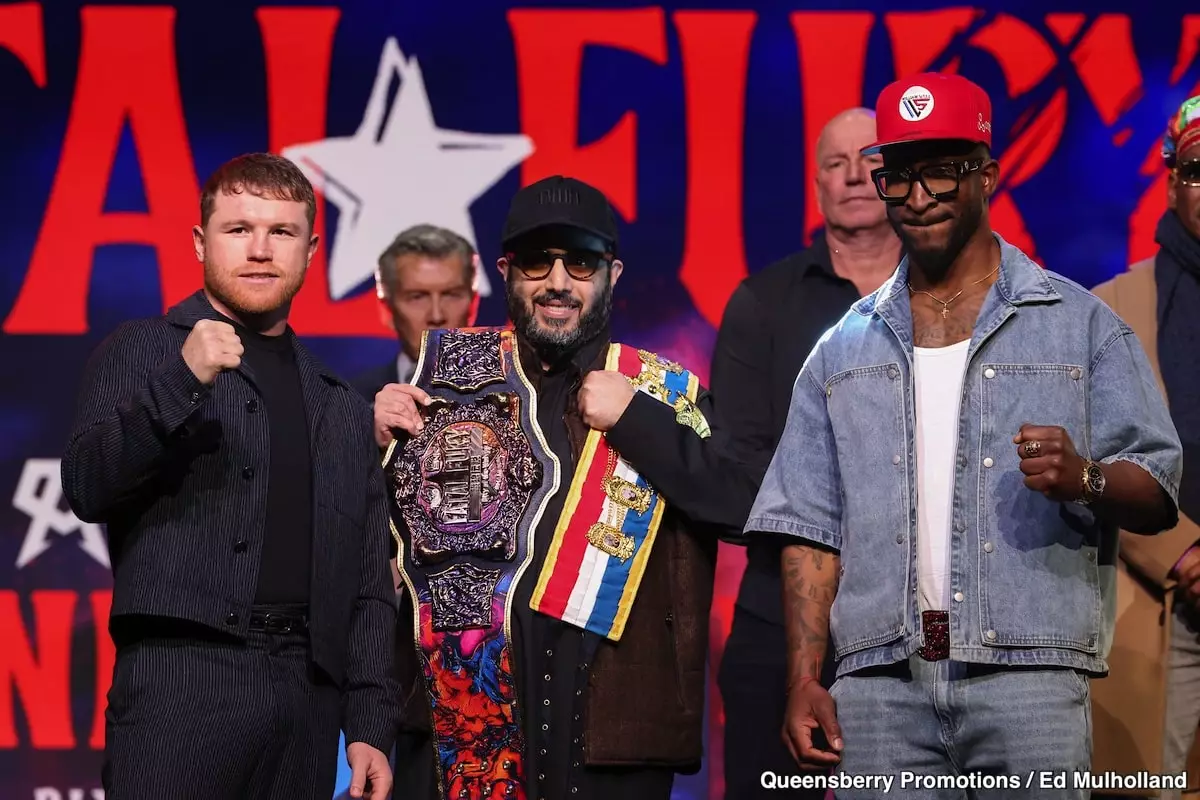Jaime Munguia’s recent inclusion on the undercard for Canelo Alvarez’s much-anticipated match against William Scull on May 3rd in Riyadh is nothing short of strategic brilliance. Following his disappointing performance against Canelo last May, where he suffered a humiliating defeat, Munguia’s placement on this high-profile Pay-Per-View card serves a dual purpose: it reignites interest in his career and sets the stage for a potential rematch with Alvarez. However, this matchup isn’t merely about securing another shot at glory; it’s a calculated move to rebuild his reputation and marketability within the sport.
Despite the evident disparity in talent and skill displayed during their first encounter, Munguia has the opportunity to solidify his standing by delivering a solid performance against Bruno Surace, his opponent. Winning this bout could pave the way for discussions about a rematch with Canelo, but such narratives raise questions about fairness in the boxing world. While Munguia is given a chance at revitalization, many other deserving contenders such as David Benavidez and David Morrell linger in the shadows, highlighting the business dynamics of professional boxing that often prioritize star power over merit.
Consequences of Underperformance
For Munguia, entering the ring against Surace is critical. A second consecutive loss would not only hinder his comeback attempts but could also permanently damage his reputation. The sting of defeat he faced against Alvarez, compounded by a prior sixth-round knockout loss to Surace, creates high stakes. A lack of performance this time around may solidify the narrative that Munguia is simply not elite enough to compete at the highest level. Fans are right to question the wisdom of giving him another spotlight; after all, shouldn’t the best talent be showcased?
Moreover, the boxing community must question the motive behind placing fighters like Martin Bakole—who suffered a brutal knockout loss to Joseph Parker—on such an unprecedented stage. Coming off a recent failure, Bakole’s premature return to the limelight raises eyebrows and signals a troubling trend. For athletes whose careers hinge on their physical form, allowing oneself to become out of shape highlights a severe instability in their professional commitments. This situation begs the question: should boxing promoters prioritize marketability over the athletes’ well-being and preparation?
Historic Tensions in the Cruiserweight Division
Adding to the tension on the undercard is the upcoming match between veteran WBC cruiserweight champion Badou Jack and Ryan Rozicki. At 41, Jack stands as a testament to longevity in a sport known for quick ascents and steeper declines. His long history in the competition will resonate with nostalgic fans, but the younger audience may be left bewildered. The juxtaposition of seasoned fighters against impressionable newcomers complicates the sport’s ecosystem. Will the legends of the past continue to dominate, or will fresh faces rise to challenge their legacies?
As we look forward to May 3rd, the stakes couldn’t be higher for Munguia and others on the card. In an industry driven by narratives and the pursuit of greatness, the boxers’ performances will ultimately define the narrative of their careers. In this high-stakes arena, it is not merely the outcome of the fights that matters, but the implications these bouts have on the futures of these fighters and the overall dynamics of the sport. As Munguia strives to reclaim his reputation, he must navigate a perilous path littered with challenges and potential pitfalls.


Leave a Reply